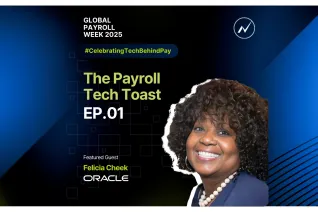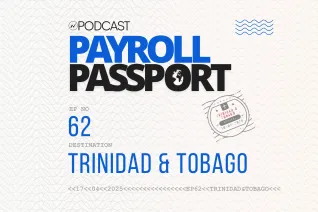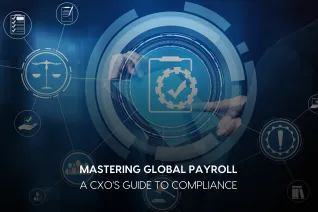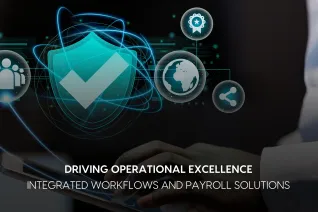Interview with Ashok Bildikar On Redefining Payroll Globally And Locally
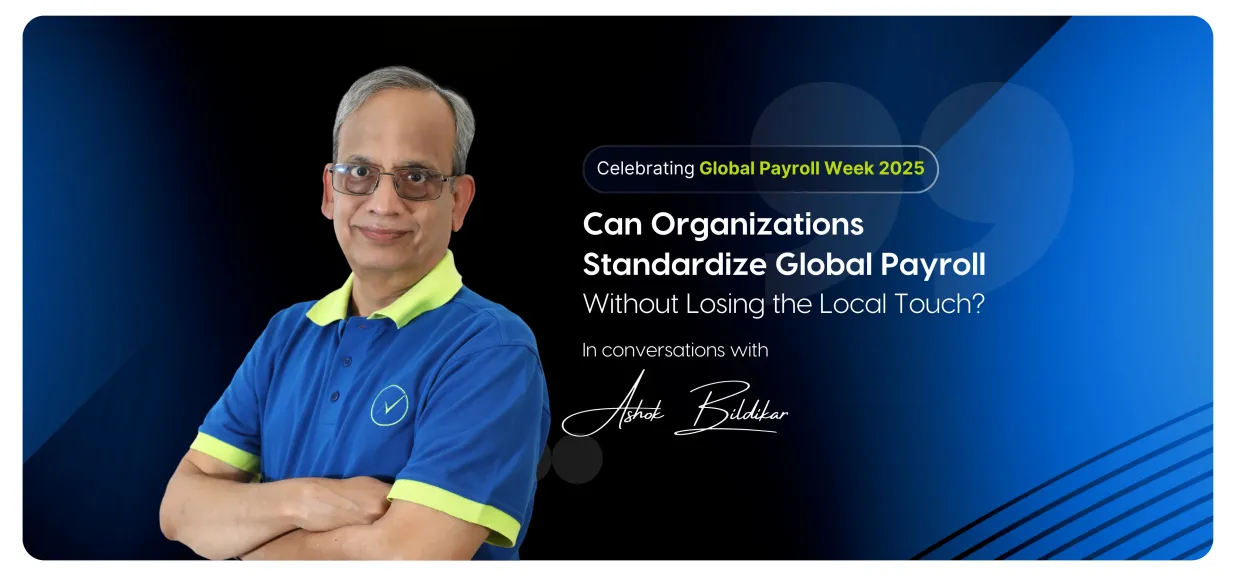
Meet Ashok Bildikar: Visionary Leader Behind Neeyamo’s Global Impact
Ashok Bildikar is the Founder, Chairman, and Managing Director of Neeyamo and the driving force behind its rise as a global leader in payroll technology and borderless workforce solutions. With over four decades of experience in shaping technology-led enterprises, Ashok has redefined what it means to manage workforces on a global scale. Under his leadership, Neeyamo operates across 185+ countries and continues to earn recognition from top analyst firms worldwide.
More than a business leader, Ashok is also a philosopher at heart. His guiding belief, “Problems can be complex, but solutions can be simple,” reflects his approach to solving some of the most pressing challenges in global payroll and HR transformation.
In this exclusive conversation with the editorial team, Ashok shares his insights on innovation, simplicity, and the future of work.
Conversation On: Can Organizations Standardize Global Payroll Without Losing the Local Touch?
Q: Why is there often tension between global payroll standardization and local configuration?
Ashok: Most multinational companies aim to standardize processes across all their operations, HR, procurement, finance, and naturally, payroll. The goal is efficiency, visibility, and accountability. But payroll is unique. Unlike other systems, payroll heavily depends on local compliance, which varies from country to country. The scope for global standardization in payroll is much smaller than in other domains. Many payroll teams believe standardization isn’t feasible due to local laws. As a result, there's often resistance when you try to implement any form of standardization.
DOWNLOAD NOW | From Local to Global: Best Practices for Managing a Hybrid Payroll System
Misconceptions Around “Going Global”
Q: What are some common misconceptions companies have when trying to globalize payroll?
Ashok: The biggest misconception is that global payroll standardization isn’t possible. I’ve heard this from many industry veterans who’ve been doing payroll the same way for decades. Changing this mindset is the hardest part. But we’ve done it and proven it works with real implementations and live demos.
Another misconception is treating payroll with a regional lens. In reality, payroll differs by country, not region. At Neeyamo, we’ve structured our platform to separate global and local layers. Taxation, social security, and labor rules vary, and we isolate those variables while maintaining a single platform that delivers local compliance and flavor.
Importance of the Local Touch
Q: Why is maintaining a local touch important in a unified global payroll model?
Ashok: Every country has its own culture, language, and terminology. What’s a form of "deduction" in one place might not even exist in another. Blue-collar workers, especially in industries like manufacturing, expect support in their local language. The support for local language is statutorily mandated- reports like employee payslip, or otherwise. Global payroll must adapt to these nuances. Complexities around weekly vs. monthly pay cycles, local holidays, time-off policies, and collective bargaining agreements need to be strictly adhered to. You can’t change people or cultures; your systems must adjust instead.
Global Standardization: The Why & How
Q: What does standardizing global payroll involve?
Ashok: It’s about aligning technology, policies, and processes. Compensation policy alignment is a key but complex area. Mergers, acquisitions, and local labor constructs can make standardization difficult. However, processes like compliance tracking, accounting, and analytics can be standardized globally.
From a technology standpoint, using a consistent platform eliminates the need for multiple country-specific systems. This greatly reduces operational & technological overhead and enables payroll professionals to easily manage multiple countries.
Q: What key components must be standardized to ensure consistency and control?
Ashok: Components like base salary and select allowances can be standardized. But many earning and deduction elements are country-specific. That said, control mechanisms like input and output validations should be standardized. At Neeyamo, we use a uniform set of checks across all countries, regardless of the number or type of pay elements.
Q: How can a global payroll engine honor local rules and still serve as a single source of truth?
Ashok: Our payroll engine is designed with configurability in mind, not customization. The engine runs a single codebase globally but applies country-specific configurations externally. This allows us to update features globally while ensuring local compliance is always met.
Local Relevance: Staying Grounded
Q: Why is failure not an option in global payroll?
Ashok: Payroll is extremely sensitive. Even a 0.01% failure is unacceptable. You cannot delay employee salaries and then say “the project failed.” That’s not an option. While transitions can be bumpy, failure isn’t viable. Organizations must ensure a backup is always ready during implementations to avoid disruption.
Q: How can companies stay compliant with fast-changing local regulations?
Ashok: Your software must be updated as soon as a regulatory change is announced. At Neeyamo, we use multiple information channels to track updates, cross-check them, and deploy changes proactively. You cannot rely on a single source.
DONWLOAD NOW | Neeyamo driving innovation to bridge the gap between global & local payroll
Q: What role does local expertise play in balancing standardization and localization?
Ashok: Local expertise remains important, but it’s evolving. You don’t always need someone physically present in a country. A remote expert can monitor government websites, track updates, and implement compliance measures. The knowledge is public; the key is vigilance.
Tech, Data & Flexibility
Q: How does modern payroll tech support global-local flexibility?
Ashok: No two countries have the same payroll setup. Our technology handles over 100 countries using a single platform, thanks to flexible data structures and rule engines. These allow us to support country-specific differences while maintaining standard processes.
Q: Do AI or machine learning play a role in navigating payroll complexity?
Ashok: We’ve used AI for compliance and ML for validation rules. Technologies like blockchain are still in their early stages for payroll. We have to evaluate each technology for data integrity, data security, and privacy, which are paramount in payroll.
ALSO READ | The Future of Global Payroll: Powered by Artificial Intelligence
Q: How do you maintain global data consistency with local variation?
Ashok: Payroll data is often more accurate than HR data, for one simple reason: payroll means money, and payroll means compliance. Analytics on the cost of hiring, exit trends, and headcount can guide strategic decisions. As long as key metrics like gross earnings are consistent, central reporting can remain robust, even with local variation.
Leadership, Strategy & Culture
Q: What’s your advice to a CHRO or CFO aiming for a unified global payroll?
Ashok: The concern about losing local touch is valid. My advice? Start small, focus on a region or a few countries before scaling globally. It depends on your organization's capacity to handle such transformations.
Q: What’s your advice for leaders rethinking their payroll strategy?
Ashok: Leaders must understand that payroll errors are costly. It’s not just an operational task, it’s a strategic lever. Engage in demos, talk to experts, and evaluate options thoroughly before deciding.
Q: How does payroll impact employee experience and workforce transformation?
Ashok: Think about it- outside of payroll, time, and absence, employees engage less with HR ecosystems. If payroll is transparent, timely, and accessible, it builds trust. Employees feel valued. That’s a core part of workforce transformation.
Wrap-Up & Vision
Q: What does a successful global-local payroll model look like?
Ashok: It’s a single platform with multilingual capabilities, audit-ready tracking, and country-specific compliance. Global structure with local sensitivity, that’s the goal.
Q: What’s the next evolution in global payroll over the next decade?
Ashok: After remaining stagnant for 75 years since the advent of elementary payroll systems, the payroll industry is finally evolving. Expect innovations like autonomous global payroll, on-demand pay, digital payment platforms, and maybe even cryptocurrencies. The landscape will change rapidly.
Q: How does Neeyamo help clients strike this global-local balance?
Ashok: We offer one system, one process, globally, yet we adhere to local laws and practices. It’s this dual focus that enables our clients to operate at scale without losing the local connection.
If you're ready to transform your payroll strategy and explore how a global solution can still honor local nuances, we’d love to help. To learn more, reach out to us at irene.jones@neeyamo.com. Let’s redefine the future of payroll, together.
Latest Resources
Stay informed with latest updates
If you're curious and have a thirst for knowledge pertaining to the HR, payroll, and EOR universe, don't miss out on subscribing to our resources.



